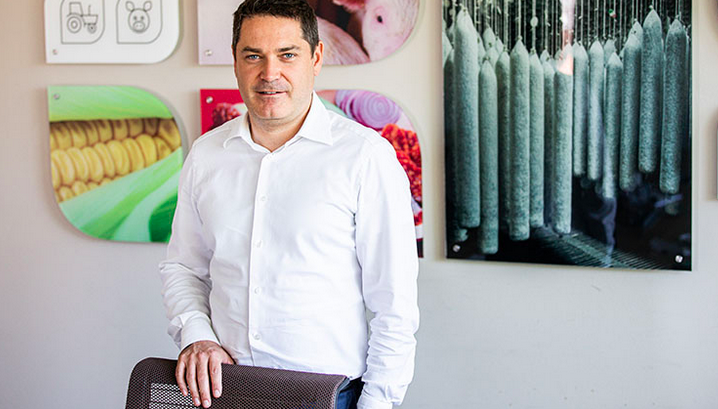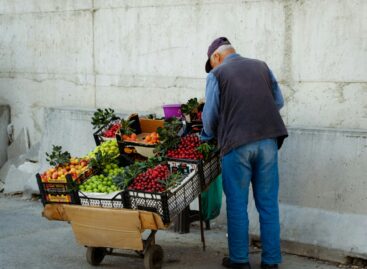Attila Csányi: Bonafarm is about the proceed with big changes
The focus of the development of its existing infrastructure and capacities is on the Bonafarm Group, owned by the President and CEO of Sándor Csányi OTP. According to Attila Csányi, CEO of Bonafarm Zrt., The recently built MCS Vágóhíd Zrt. In Mohács will be expanded to two shifts, and contrary to market news, there are no plans to buy the Kiskunfélegyháza slaughterhouse operating with older technology. A new poultry slaughter plant will also be built in Szentes, and a new fermentation and pulverization plant will be handed over at the milk processing Szeged Sole-Mizo Zrt. By the end of the year. The CEO sees that domestic food companies have done well in the situation due to the coronavirus epidemic, as the food supply of the population was not in jeopardy despite the panic shopping attacks.
Div>

Agrarszektor.hu: The first wave of the coronavirus epidemic has also ended in Hungary, but the economic effects have not disappeared. How did the crisis caused by the virus affect domestic food companies processing agricultural raw materials?
Attila Csányi: Overall, the Hungarian food industry players responded appropriately to the emergency, although the industry was also lucky that there were no diseases among the workers. The companies passed the exam, as the food supply in Hungary was not in jeopardy, and the market shocks due to the sudden waves of food purchases were managed within a few days. However, this was also helped by the fact that there was no panic at home among food workers and they constantly visited their workplace even when much of the country worked in a home office for fear of the virus. Of course, the companies have also taken the necessary steps, for example, we have condensed employee bus services, introduced body temperature measurements during crawling, and prescribed mask use and hand disinfection, among many other measures. In retrospect, however, it appears that the domestic effects of Covid-19 resulted in less damage and additional costs. The consequences of avian influenza and the swine fever that have occurred in the meantime, the sales of meat stocks in China due to US plant closures or the recent shutdowns of meat processing plants in Germany have caused fluctuations in raw material prices that are far from the effects of the coronavirus epidemic.
Related news
Related news
How does the forint exchange rate affect consumer prices?
🎧 Hallgasd a cikket: Lejátszás Szünet Folytatás Leállítás Nyelv: Auto…
Read more >From ham to egg dye – comprehensive Nébih inspection continues until Easter
🎧 Hallgasd a cikket: Lejátszás Szünet Folytatás Leállítás Nyelv: Auto…
Read more >NGM: Hungarian micro and small enterprises can apply for site development under more flexible conditions
🎧 Hallgasd a cikket: Lejátszás Szünet Folytatás Leállítás Nyelv: Auto…
Read more >Loading, Please Wait!
This may take a second or two.





